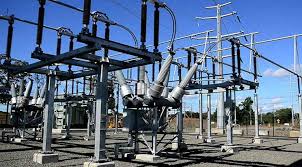Seven States Take Over Electricity Regulation Under Tinubu’s Electricity Act

The Nigerian electricity sector is undergoing a major transformation as seven states officially assume control of electricity regulation within their borders, following the implementation of the Electricity Act 2023 signed by President Bola Tinubu.
According to the Nigerian Electricity Regulatory Commission (NERC), Enugu, Ondo, Ekiti, Imo, Oyo, Edo, and Kogi states have successfully transitioned to managing their own electricity markets.
Anambra, having recently passed its electricity law, is preparing to follow suit, while Lagos, Ogun, Niger, and Plateau are expected to complete their transitions between June and September.
The Electricity Act 2023 decentralises the Nigerian power sector, allowing states to generate, transmit, distribute, and regulate electricity independently—marking a historic shift from the previously centralised model where NERC served as the sole regulator nationwide.
Opportunities and Concerns
The reform has generated mixed reactions among stakeholders. While many see the decentralisation as a leap forward for energy access and market competitiveness, others have raised concerns about states’ readiness to handle the complex regulatory responsibilities.
“There’s a huge knowledge gap,” said a senior NERC official, speaking anonymously. “Most states lack the manpower and technical capacity needed to manage pricing, infrastructure, and enforcement.”
One major concern is tariff setting—a technically demanding process with few experts globally. Asset delineation and cross-border infrastructure further complicate matters, as transmission lines often run through multiple states.
NERC has so far issued 11 regulatory transition orders to states that met the required conditions, each with a six-month deadline for full transfer of responsibilities.
As part of the transition, Discos operating in these states are required to create subsidiaries to manage intrastate electricity distribution under state regulations.
For example, in Enugu State, the Enugu Electricity Distribution Company has established MainPower Electricity Distribution Limited, now regulated by the newly formed Enugu Electricity Regulatory Commission.
**Consumer Advocates Raise Flags**
Adetayo Adegbemle, Executive Director of PowerUp Nigeria, welcomed the reform but criticised the slow implementation by some states. “Out of 11 states granted regulatory autonomy, only four have taken meaningful steps to establish legal and institutional frameworks,” he said. “The rest appear stuck in the declaration stage.”
He warned that the absence of regulatory enforcement in transitioning states could leave consumers vulnerable. “Autonomy should not become abandonment. States must protect consumers with strong frameworks and clear rules.”
**Federalism and Localised Solutions**
Kunle Olubiyo, President of the Nigeria Consumer Protection Network, praised the reform as a reflection of true federalism. He explained that the decentralisation does not mean breaking up the national grid but empowers states to develop off-grid and embedded generation tailored to their specific needs.
“States can now license local projects, serve agro-industrial clusters, and implement customer-centric models. It opens the door to more investment and improved service delivery,” he said, though warning that proper coordination between state and federal laws is crucial to prevent chaos.
**Expert Warnings and the Road Ahead**
Energy law expert Prof. Dayo Ayoade urged both federal and state governments to create a supportive environment for investment and cooperation.
“We need harmonised regulations to ensure investor confidence and prevent regulatory fragmentation,” he said.
Similarly, Adeola Samuel-Ilori of the All Electricity Consumers Protection Forum stressed the need for firm state-level regulatory compliance and consumer metering. “Investors will only be interested if they see solid governance structures that prevent exploitation,” he noted.
Samuel-Ilori expressed concern about the preparedness of some states, warning that political interference could undermine the intended benefits. “Will the states run this system in the public’s interest, or will it become a tool for political patronage?” he asked.
**Ekiti State Speaks Out**
Ekiti State Commissioner for Infrastructure, Prof. Mobolaji Aluko, confirmed that the state has established its Electricity Regulatory Bureau and is working closely with stakeholders to ensure a smooth transition. He advocated for the creation of subnational Discos from existing operators to ease the regulatory shift.
**Conclusion**
While the decentralisation of Nigeria’s electricity sector presents a promising opportunity for improved access, efficiency, and accountability, it also raises complex challenges. As states step into roles previously held by the Federal Government, the success of the Electricity Act 2023 will depend largely on their ability to build competent regulatory institutions, attract investment, and protect consumers.
For now, the transition is a work in progress—one that could redefine the future of power in Nigeria.








